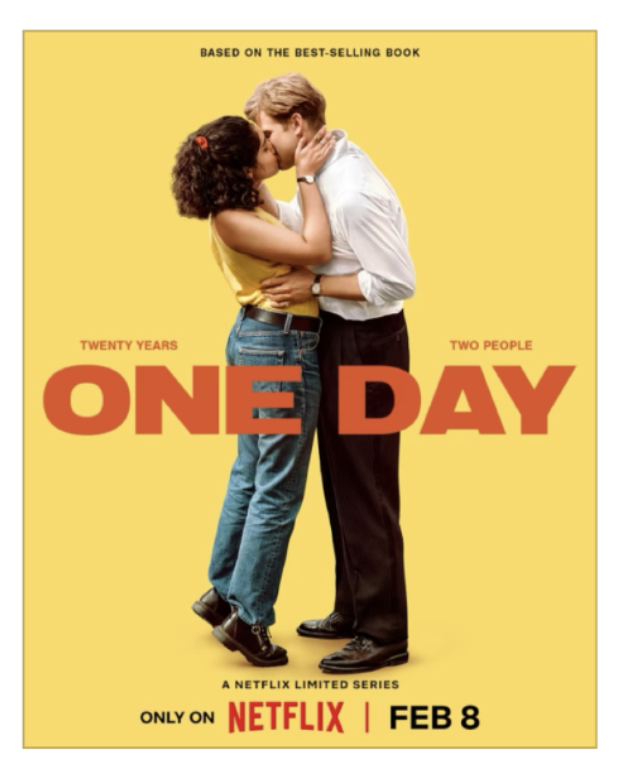Between May 2 and Nov. 9, 2023, Hollywood experienced its first major Writers Guild strike in over a decade, with several issues on the line, most notably the usage of AI and residuals from streaming services. The last Writer Guild strike ran from Nov. 5, 2007 to Feb. 12, 2008.
Robert Furmanek, who teaches Economics at State High, views the defining themes of the 2023 strikes as the balance between labor and business, but that’s not all. Furmanek emphasizes “the perception of workers and the idea that they are being undervalued.”
A core tenet of this analysis is the rise of AI, which many workers fear will put them out of business. As such, writers feel that AI threatens their job security.
Beyond the concessions won by the Writers Guild, this strike is significant because of how it modeled a response to AI. It is the first major strike across America that was caused (at least partially) by AI, meaning that it could define how AI is treated and viewed in the workforce throughout the next few years. Contesting the use of AI in artistic professions may set an important precedent moving forward.
According to State High’s Business Law teacher, Jeffery Kissell, the writer’s specific demands directly responded to the seismic technology shifts reshaping media. For Kissel, the issues came down to “better pay, better residuals for streaming, and real job security because of AI and how Hollywood is using it to eliminate jobs.” Another persistent issue seen across the year is the streaming question or the debate around how to adequately accommodate writers for the success of shows in the streaming industry.
In 2007, the causes for the strike also hinged on making emerging technologies profitable at the cost of workers. According to Kissel, the Writers Guild sought “compensation for work distributed via new media including streaming and online platforms.”
Similarly, Furmanek connected the previous strikes to more significant economic themes of the 21st century. More specifically, the relationship between labor and value.
“I feel most strikes of the last 20 years have become more about the value of the business and the percent workers feel they contribute,” Furmanek said. “For example, fast food workers being valued at $15 an hour due to that as the worth percentage of what the input into the business.”
Furmanek also emphasizes how the role of work is changing due to the ever-increasing flow of information in our society.
“We are at a state in our modern economy and society where information is free, available, and clearly showing the value of workers and business. We need to reevaluate what work is and who deserves what share of the pie,” Furmanek stated.
Kissell views the strikes as a helpful way to explain economics, as the strikes in his mind “identify shifts in tactics based on technological achievements and strategies in order to employ those advancements.”
Furmanek places the 2023 strikes in the context of the recent boom in strikes throughout the nation.
Although prior Writers Guild strikes occurred in 1960, 1982, and 1988. The gap between 1988 and 2007 was understood to be an effect of the declining power of labor unions rather than diminishing labor issues. That trend appears to be turning.
According to a CNBC report cited by Furmanek, around 362,000 workers went on strike in 2023 — over twice the amount in 2022 and over nine times in 2021. Common reasons for this surge in strikes are unemployment benefits, proper pay and health insurance, and threatened job security.
Kissell used this strike to illustrate what may happen in the near future.
“More strikes mean better conditions and a broader movement with workers in all industries, such as the Auto Industry,” Kissell said.
The Auto Industry, in particular, has made waves this year as both UPS and the UAW have seen major successes in the last few months. Essentially, both UPS and the United Auto Workers have made historic deals this year that would provide pay raises and stronger protections for workers.
As for the potential effects of the strikes, Furmanek holds the view that Hollywood will take advantage of the newly found prosperity.
“Skeptically, I feel we will see a rise in prices in some capacity… business seems to respond initially with what the consumers will support/pay for,” Furmanek said.
A recent development within the film community is the frustration with sequels and remakes. This has caused audiences to respond more negatively to films like “Ant-Man: Quantamania” and “The Flash” while responding more positively to original(ish) films such as Barbie and Oppenheimer. The writer’s strikes, which supposedly guarantee more quality content, could potentially be an excuse for Hollywood to raise prices on streaming services.
Kissell thinks that the strikes will have an exponentially positive impact on Hollywood. In his own words, the effect is “money, money, money, as well delays in the schedules for new films and tv shows.”
Even the delays could pay off in the end, as they could give the studios more time to improve the quality of their products.
Despite the differences between the actual content of the strikes, there are still many similarities, most notably the impacts of new technologies and innovations on workers. This is a trend that will likely continue not just across the entertainment industry, but throughout the entire history of industry, as technological advances will almost certainly be seen as a threat to workers’ rights.








